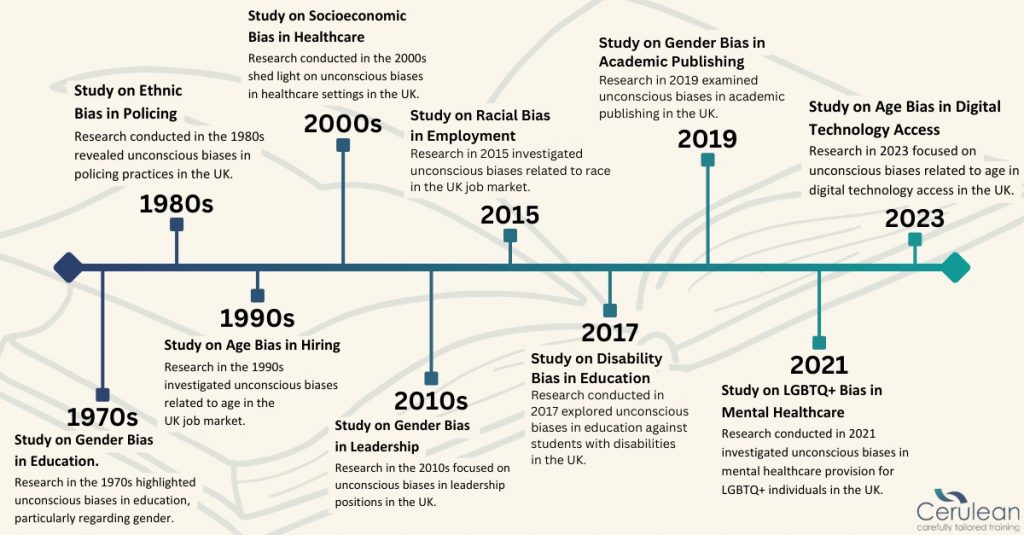Our sessions on unconscious and implicit bias are always popular and our learners really enjoy finding out how our ‘lazy’ brains can lead us into unhelpful patterns and responses. The advances in science and in the literature are constantly offering us new material and in recent years, the research and literature on unconscious bias has evolved significantly, reflecting broader societal changes and a deeper understanding of the complexities of bias.
Early studies primarily focused on individual biases and cognitive processes, but contemporary research now emphasizes the structural components of implicit bias, as well as elements of intersectionality, exploring how overlapping identities (e.g., race, gender, class) influence experiences of bias. As a result, we ran our first session on unconscious bias and intersectionality earlier this year.
Recent developments highlight the integration of unconscious bias research into public policy and institutions, with reports like the UK’s “Race Disparity Audit” revealing systemic inequalities. This has spurred initiatives in healthcare, education, and criminal justice aimed at reducing bias and promoting equity.
In the corporate sector, there’s been a surge in unconscious bias training to foster diversity and inclusion. However, recent critiques question the effectiveness of these interventions without systemic changes, suggesting that awareness alone is insufficient for meaningful progress. This is certainly backed up by the research in this area and we encourage our clients to think structurally and systemically when they first suggest training on these topics. We are lucky to have equality and diversity policy experts in our team who can help with this.
We are also mindful that technological advancements, particularly in AI, have introduced new dimensions to the study of unconscious bias, focusing on the ethical implications of algorithmic biases and the need for fair, transparent practices in digital systems. This work is in its early stages and will do doubt continue to have an impact on the conversations around this topic.
It’s clear we need an holistic approach to the impact of unconscious bias to combine awareness with structural changes and which includes engaging less seen and heard communities in developing solutions. We need long-term strategies to mitigate bias and promote inclusive practices across all sectors of society to help us move beyond individual awareness to systemic and structural change.
Here is a timeline we have put together of the evolution of the literature on unconscious bias.

You can find out more about all the EDI&B Bite-size Learning sessions we offer here.
We know that training is a constantly evolving arena. Keep up to date with new and exciting developments, along with details of our latest training courses and workshops, by signing up to our newsletter here.

